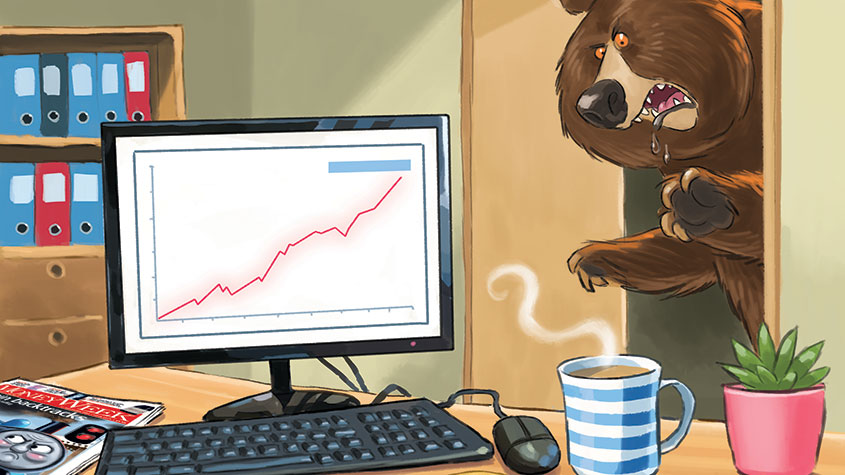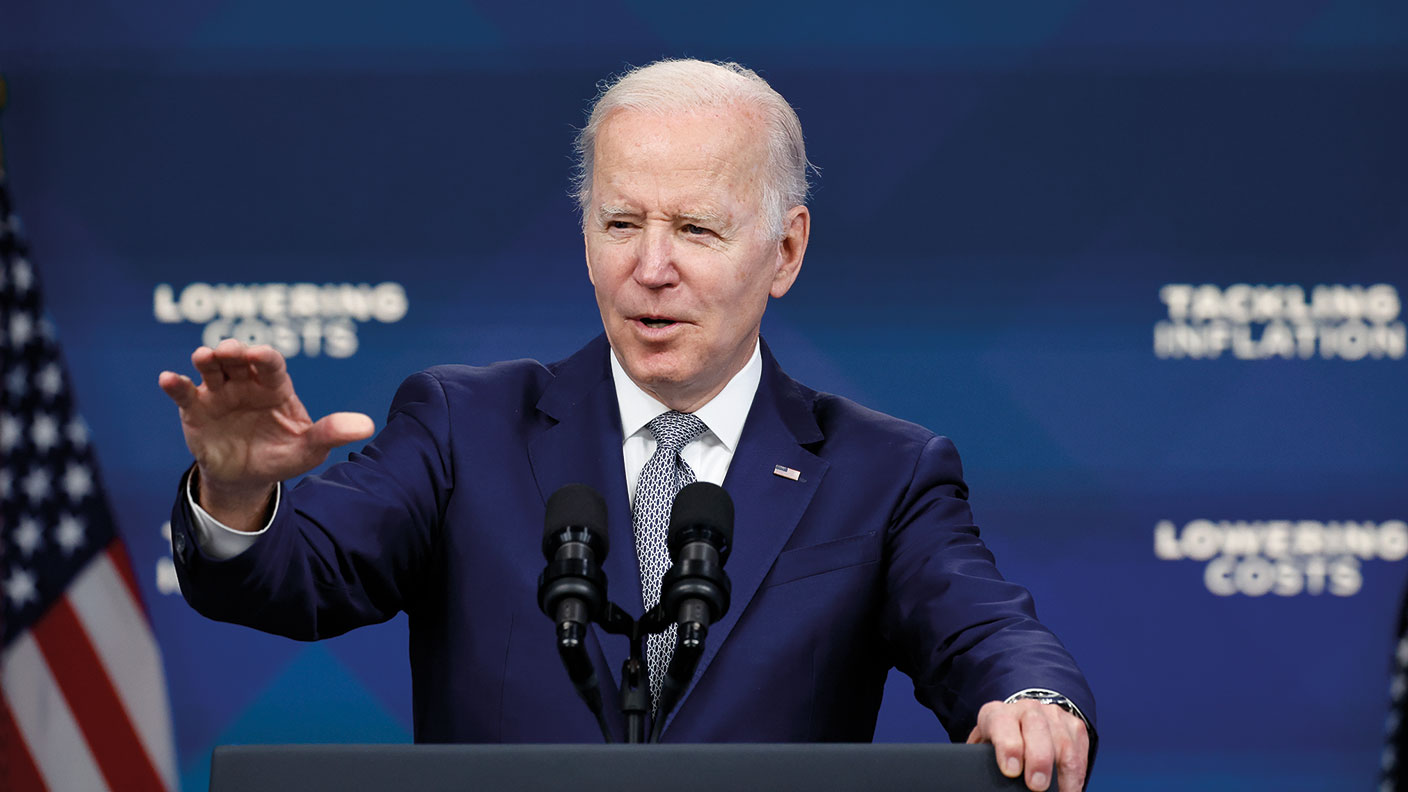A thousand thankyous
Welcome to the 1,000th issue of MoneyWeek – we couldn't have done it without our readers.


Get the latest financial news, insights and expert analysis from our award-winning MoneyWeek team, to help you understand what really matters when it comes to your finances.
You are now subscribed
Your newsletter sign-up was successful
Want to add more newsletters?

Twice daily
MoneyWeek
Get the latest financial news, insights and expert analysis from our award-winning MoneyWeek team, to help you understand what really matters when it comes to your finances.

Four times a week
Look After My Bills
Sign up to our free money-saving newsletter, filled with the latest news and expert advice to help you find the best tips and deals for managing your bills. Start saving today!
Welcome to the 1,000th issue of MoneyWeek (and the tenth done from home!). It’s been quite a ride. We’ve seen a few bear markets. We’ve seen emergency monetary (and now fiscal) policy seemingly change the way markets work completely (see Andrew’s analysis of this madness in this week's magazine). We’ve watched the integration of China into the global economy; been front-row spectators as a 30-year interest rate and inflation cycle has played out; dipped in and out of a couple of commodity bull markets (time to buy again?); and seen technology transform our investing and personal lives along the way.
We have also gathered quite a few readers. The main thing to say this week, then, is thank you to all of you. Thousands of you have been subscribers since the very early days. You’ve seen all the extraordinary events of the last 20 years with us. And you’ve been our inspiration. Our original aim was to make all of our financial lives both simpler and richer by cutting through the self-interested waffle of the world of personal finance advice to get to the stuff that really matters. That has meant getting to grips with the long-term market trends noted above. But it has also meant focusing on less glamorous subjects: the power of compounding; the use of tax wrappers (sometimes the structure of a product matters as much as its contents); the relentless pace of change in pensions regulation; the need for real portfolio diversification (you can’t always be right, so you must always diversify); the best ways to produce a steady income; and the seemingly endless debate about the correct balance between active and passive investments.
We haven’t always got it right, of course (John runs through of our best and worst calls this week). But looking at our first issue (4 November 2000) with its stories about the dangers inherent in the euro, the ballooning in size of the public sector, the need to hold tech stocks for the long term, the rise of cybersecurity as a risk, and the wisdom of holding gold, we have at least mostly been thinking about the right things! And I very much hope we still are. This week we are thinking about valuations. Should US stocks really be so much dearer than European ones? Can money printing defy lockdown economics indefinitely? Are emerging markets really having as good a crisis as it seems? And we are thinking beyond Covid-19 to the rise of drug-resistant bacteria – possibly more of a long-term threat to our way of life.
MoneyWeek
Subscribe to MoneyWeek today and get your first six magazine issues absolutely FREE

Sign up to Money Morning
Don't miss the latest investment and personal finances news, market analysis, plus money-saving tips with our free twice-daily newsletter
Don't miss the latest investment and personal finances news, market analysis, plus money-saving tips with our free twice-daily newsletter
But more than ever we have been wondering what you are thinking. So we asked you to tell us how you would invest £1,000 for ten years from now. The best answers (and I’m sorry we couldn’t get them all in) are in this week's magazine. One of my favourites is the idea of buying up old maps. Why? Because in our first issue, under the headline “Chart Your Way to Riches”, we suggested exactly that. The more things change the more they stay the same. Choosing a winner was tough. But we have settled on an idea from A. Dickens: buy solid silver cutlery. We are bullish on silver (for much the same reasons we like gold). But if that doesn’t work out, who doesn’t like to eat with silver (gold cutlery is a bit OTT). And should the doom-mongers be correct and another lockdown lies ahead, what better activity could there be for your kids than polishing it? A pile of excellent investment books is on the way to Mr Dickens. Here’s to the next 1,000 issues.
Get the latest financial news, insights and expert analysis from our award-winning MoneyWeek team, to help you understand what really matters when it comes to your finances.

-
 Plan 2 student loans: a tax on aspiration?
Plan 2 student loans: a tax on aspiration?The Plan 2 student loan system is not only unfair, but introduces perverse incentives that act as a brake on growth and productivity. Change is overdue, says Simon Wilson
-
 Early signs of the AI apocalypse?
Early signs of the AI apocalypse?Uncertainty is rife as investors question what the impact of AI will be.
-
 What to do as the age of cheap money and overpriced equities ends
What to do as the age of cheap money and overpriced equities endsEditor's letter The age of cheap money, overpriced equities and negative interest rates is over. The great bond bull market is over. All this means you will be losing money, says Merryn Somerset Webb. What can you do to protect yourself?
-
 Investors are bullish – but be very careful
Investors are bullish – but be very carefulEditor's letter Many investors are buying the dip, convinced the latest upswing is the start of a new bull market. The odds are that it’s not, says Andrew Van Sickle. The bear has unfinished business.
-
The MoneyWeek approach to investing
Editor's letter At MoneyWeek, our aim is simple: to give you intelligent and enjoyable commentary on the most important financial stories, and tell you how to profit from them. So how do we do that?
-
 Celebrity bitcoin ads echo the subprime mortgage crisis
Celebrity bitcoin ads echo the subprime mortgage crisisEditor's letter A wave of ads featuring celebrities punting crypto to the masses are reminiscent of how low income Americans were encouraged to take on loans they couldn’t afford, says Merryn Somerset Webb.
-
 Will the UK's property slowdown turn into a house-price crash?
Will the UK's property slowdown turn into a house-price crash?Editor's letter As the cost-of-living crisis intensifies and interest rate rise, it is hard to see reasons for UK house prices to keep rising, says Merryn Somerset Webb.
-
 The unintended consequences of ESG investing
The unintended consequences of ESG investingEditor's letter Many people are refusing to invest in energy companies, citing "ESG" concerns. But we still need fossil fuels, says Merryn Somerset Webb, and will for years to come. Boycotting the sector is a bad idea.
-
 What sardines can teach investors about today's markets
What sardines can teach investors about today's marketsEditor's letter A California tale of “eating sardines” and “trading sardines” can help us divide investments into speculative and real, says Merryn Somerset Webb. Something that's very useful when looking at today’s markets.
-
 The market finally seems to be getting it
The market finally seems to be getting itEditor's letter Reality checks are coming fast to the markets, says Merryn Somerset Webb – with even 2022’s safe havens beginning to reflect recession worries.